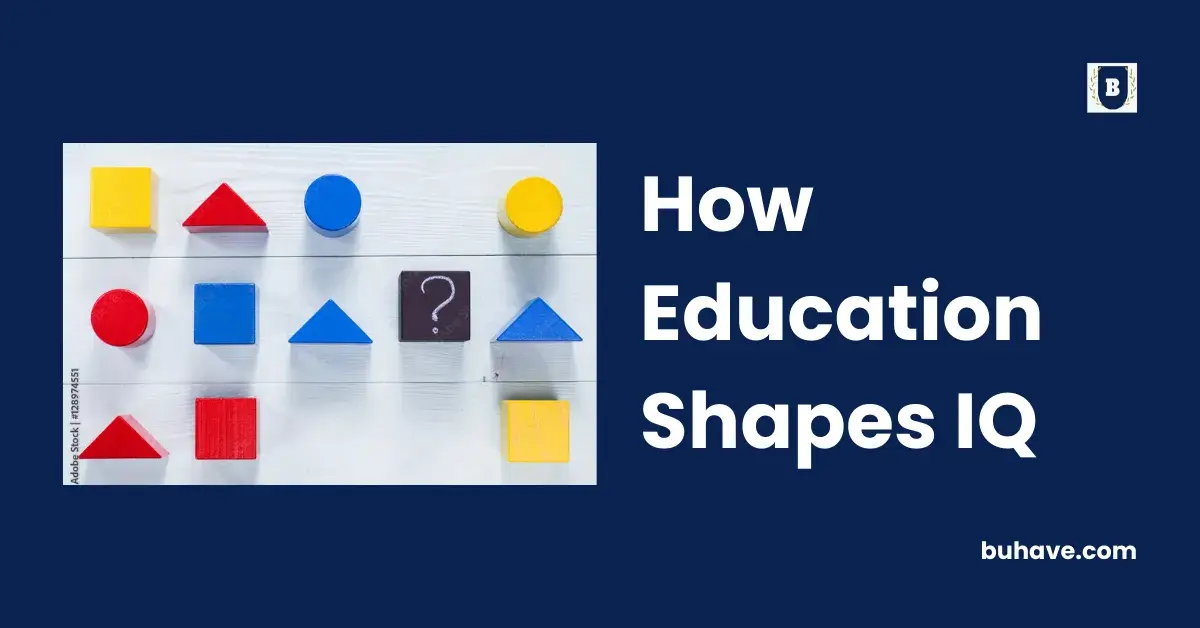Over the years, the discourse around intelligence quotient (IQ) and education has stirred up a range of interesting debates. IQ, once considered a fixed measure of cognitive capacity, is now understood to be more malleable, with various factors including education playing a significant role in its development. Therefore, to understand the impact of education on IQ, it’s essential to delve into the intricate relationship between these two aspects of human development.
Education as a Tool for Cognitive Enhancement
Education serves as a cognitive enhancer, providing individuals with a platform to develop various intellectual skills. When we talk about the relationship between education and IQ, it is not just about acquiring knowledge but also about how education promotes mental exercise.
Even though there’s an ongoing debate around whether IQ is an innate or an acquired trait, many researchers argue that education, by its very nature, aids in the growth of intellectual skills such as logical thinking, problem-solving, and critical reasoning. These skills are essential components of IQ tests, which can be assessed using platforms like iq-global-test.com. Continuous nurturing of these abilities through education can lead to an improvement in IQ scores.
The Flynn Effect
A phenomenon that illustrates the influence of education on IQ is the Flynn Effect, named after political scientist James R. Flynn. It refers to the substantial increase in IQ scores observed over several decades in many parts of the world.
Interestingly, this increase in IQ scores coincided with periods of expanded access to education and improvements in educational quality. Therefore, some researchers attribute a portion of the Flynn Effect to the increased availability and quality of education. However, it is important to note that other factors such as better nutrition, reduced exposure to toxins, and societal complexity also contribute to this phenomenon.
Cognitive Reserve
Education is also known to contribute to a concept called ‘cognitive reserve’. This is essentially an individual’s resilience against cognitive decline or damage. Even though a person’s cognitive reserve doesn’t directly affect their IQ score, it significantly influences their cognitive functioning and adaptability.
A higher level of education can help build a stronger cognitive reserve. Therefore, an individual with a strong cognitive reserve might maintain a relatively high level of cognitive functioning even when faced with factors that would typically result in cognitive decline. This principle may indirectly influence IQ levels, especially in later stages of life.
The Power of Early Education
A pivotal aspect of the education-IQ connection lies in early childhood education. Extensive research has shown that early education plays a fundamental role in shaping a child’s cognitive abilities. A child’s brain is highly plastic during early development, therefore, this period represents a window of opportunity for significant cognitive enhancement.
The impact of early education on IQ is particularly pronounced in children from disadvantaged backgrounds. High-quality preschool education can give these children a much-needed cognitive boost, thereby reducing the IQ disparity often seen between different socioeconomic groups. However, it’s also critical to ensure that these early educational interventions are followed up with quality education throughout the child’s life to sustain the cognitive gains.
Despite the compelling evidence linking education and IQ, it’s important to remember that IQ is not the sole indicator of intelligence or success. It’s one component of a broader cognitive landscape that includes emotional intelligence, creativity, adaptability, and a myriad of other factors.
– If you are looking for a guest post, write for us education article now.

